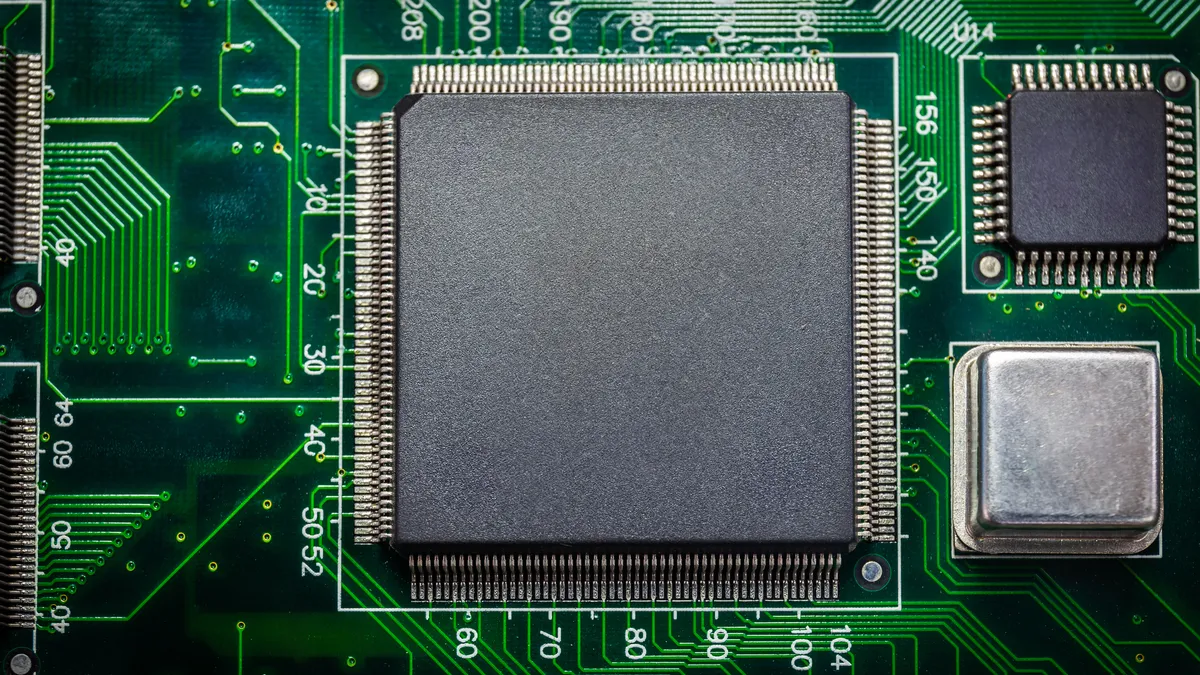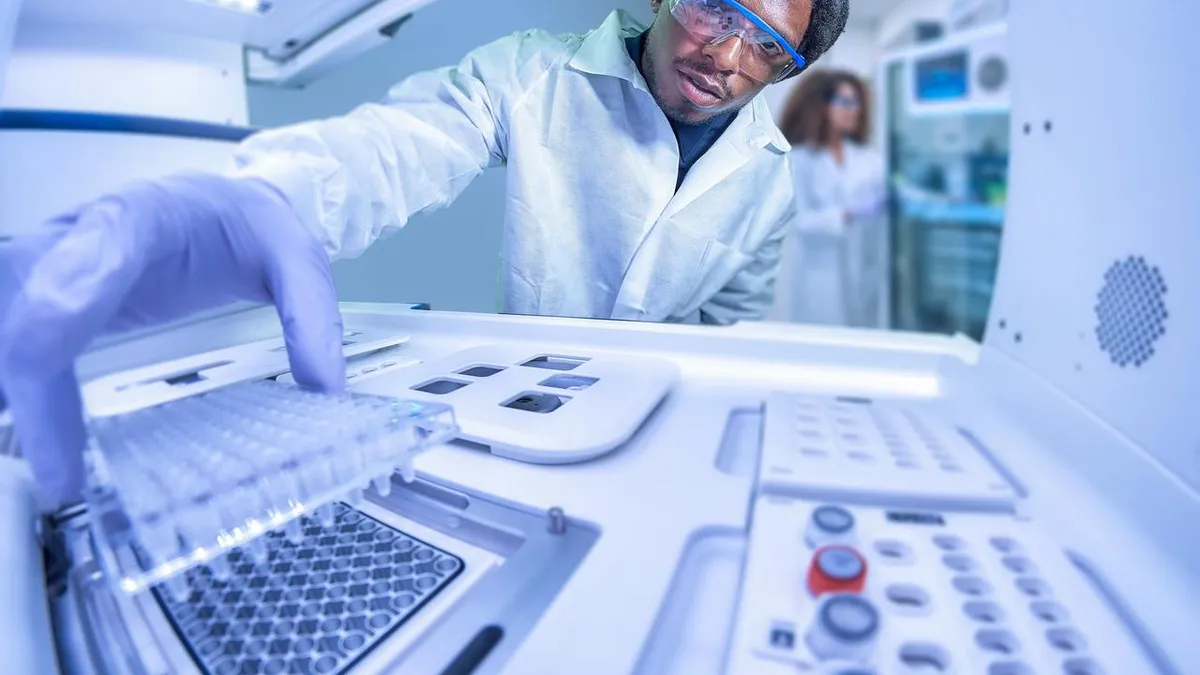Dive Brief:
- The Department of Commerce has announced an upcoming competition for developing artificial intelligence technologies, offering up to $100 million in funding through the CHIPS and Science Act, according to an Oct. 7 press release.
- The initiative will target university-led projects focusing on AI-powered autonomous experimentation for sustainable semiconductor materials production.
- The funding commitment will be over a period of no more than five years to support at least two large, team-oriented awards. The funding notice is expected later this year, according to the department’s notice of intent.
Dive Insight:
The open competition aims to push semiconductor production to be more sustainable.
“Right now, new semiconductor materials often take years to be production-ready and are incredibly resource-intensive,” Secretary of Commerce Gina Raimondo said in the release. “If we’re going to quickly build up America’s semiconductor manufacturing base, in a way that’s sustainable over the long term in the face of increasing threats from the climate crisis, we need to leverage AI to help develop sustainable material processes quickly.”
The notice mentioned the projects should address key industry goals like improving energy/water efficiency, supply chain resilience and reducing emissions and waste.
The chip industry is known to have a major environmental impact on surrounding communities — affecting drinking water, air quality, climate change, and community health, and even PFAS.
In October, President Joe Biden signed a law exempting CHIPS and Science Act-funded semiconductor manufacturing facilities from federal environmental reviews. While some environmental groups weren’t thrilled, other industry groups said it’s needed to avoid construction delays and continue the buildout of the country’s semiconductor industry.
The government funding comes as AI demand continues to boost large chipmakers. Taiwan Semiconductor Manufacturing Co., which has three major fabrication plants in Arizona under construction, reported a record Q3 revenue of $23.5 billion, up 36% year over year. Company executives attributed the numbers to “extremely robust AI-related demand.”
Micron was in the same boat — its 2024 revenue hit $25.1 billion, a 62% YoY spike, benefiting from a rise in AI chip demand. The company is making progress with its $100 billion project in Clay, New York, as well as a $25 billion memory chip fab in Boise, Idaho, both of which received a combined $6.1 billion in April under the CHIPS Act.












